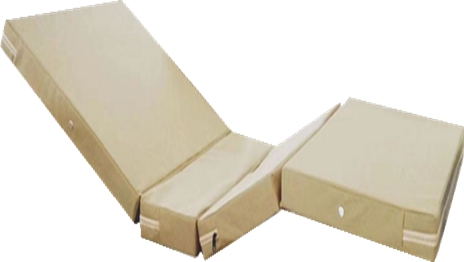Suppliers of Hospital Beds and Their Impact on Healthcare Systems
Understanding Hospital Bed Suppliers Key Players in the Healthcare Sector
In the ever-evolving landscape of healthcare, hospital bed suppliers play a critical role in ensuring that medical facilities have the necessary equipment to provide high-quality patient care. Hospital beds are not merely furniture; they are a vital component of the hospital environment, influencing patient comfort, safety, and recovery. This article delves into the significance of hospital bed suppliers, their types, the innovations within the industry, and future trends.
The Importance of Hospital Bed Suppliers
Hospital bed suppliers provide a wide range of medical beds, which vary significantly in terms of functionality, design, and technological integration. These suppliers are essential for hospitals, nursing homes, and home health care settings, as they ensure that healthcare providers can offer advanced care to patients. The right bed can improve patient outcomes by promoting better mobility, comfort, and accessibility.
For instance, adjustable beds facilitate easier movement for both patients and medical staff. They often come with features that allow the head or foot to be elevated, which is crucial for patients with certain medical conditions. Furthermore, specialized beds such as bariatric beds for overweight patients or pediatric beds designed for children show the breadth of care required in different medical scenarios.
Types of Hospital Bed Suppliers
Hospital bed suppliers can be categorized into several types based on their offerings
1. Manufacturers These companies design and produce hospital beds. They invest heavily in research and development to enhance the functionality and safety of their products. Leading manufacturers also focus on integrating technology into their beds to improve patient monitoring and comfort.
2. Distributors These suppliers purchase beds from manufacturers and sell them to healthcare providers. They often serve as a bridge between manufacturers and hospitals, providing logistical support and expertise in product selection.
3. Rental Services Some companies focus on renting hospital beds to medical facilities. This model is particularly beneficial for institutions that may not have the budget for outright purchases or for those that face fluctuating patient needs.
4. Specialized Suppliers These suppliers focus on niche markets, providing beds tailored for specific needs, such as pediatric or geriatric care. They often have unique offerings that cater to specific patient requirements.
hospital bed suppliers

Innovations in Hospital Beds
The technological landscape in hospital bed manufacturing has seen transformative advancements in recent years. Modern hospital beds are increasingly equipped with smart technology to enhance patient care. Features such as integrated sensors for vital signs monitoring, pressure-relieving systems to prevent bedsores, and remote-controlled adjustments make today’s hospital beds more sophisticated than ever.
Furthermore, the emergence of telemedicine has spurred innovations in patient care equipment. Some beds now come with built-in communication tools, allowing healthcare providers to monitor patients remotely and adjust treatment plans more effectively. This is particularly important in the context of a global pandemic, where minimizing physical contact is essential.
Future Trends in Hospital Bed Supply
The future of hospital bed suppliers will likely involve several significant trends
1. Increased Demand for Customization As healthcare providers recognize the diverse needs of their patients, there will be increased demand for customizable beds that can be tailored to different medical conditions and patient preferences.
2. Sustainability As environmental concerns rise, hospital bed suppliers are expected to create more sustainable products, utilizing eco-friendly materials and manufacturing processes.
3. Integration of AI and IoT The incorporation of artificial intelligence and the Internet of Things (IoT) into hospital beds will enhance patient monitoring and data collection, leading to more personalized care.
4. Focus on Ergonomics Supplier emphasis on ergonomically designed beds will rise, prioritizing not only patient comfort but also enabling healthcare workers to perform tasks without unnecessary strain.
Conclusion
Hospital bed suppliers are indispensable in the healthcare system, providing the foundation for effective patient care. Their role extends beyond simply supplying furniture; they are pivotal in ensuring that medical facilities can navigate the complexities of patient management. As the industry evolves, hospital bed suppliers will continue to innovate and adapt, ultimately enhancing the quality and efficiency of healthcare delivery. As we advance, the collaboration between healthcare providers and bed suppliers will be crucial in shaping the future of patient care.
-
Mattresses Designed for Back Pain ReliefNewsAug.08,2025
-
Innovative Wave Mattresses for Ultimate ComfortNewsAug.08,2025
-
High-Quality Mattresses for Hospital BedsNewsAug.08,2025
-
High-Quality Mattresses for Every NeedNewsAug.08,2025
-
Healthcare Foam Mattress: Sleep Better, Heal FasterNewsAug.08,2025
-
Cube Mattress for Daily ComfortNewsAug.08,2025
-
How Hospital Mattress Choices Directly Impact Patient Comfort and CareNewsAug.05,2025

